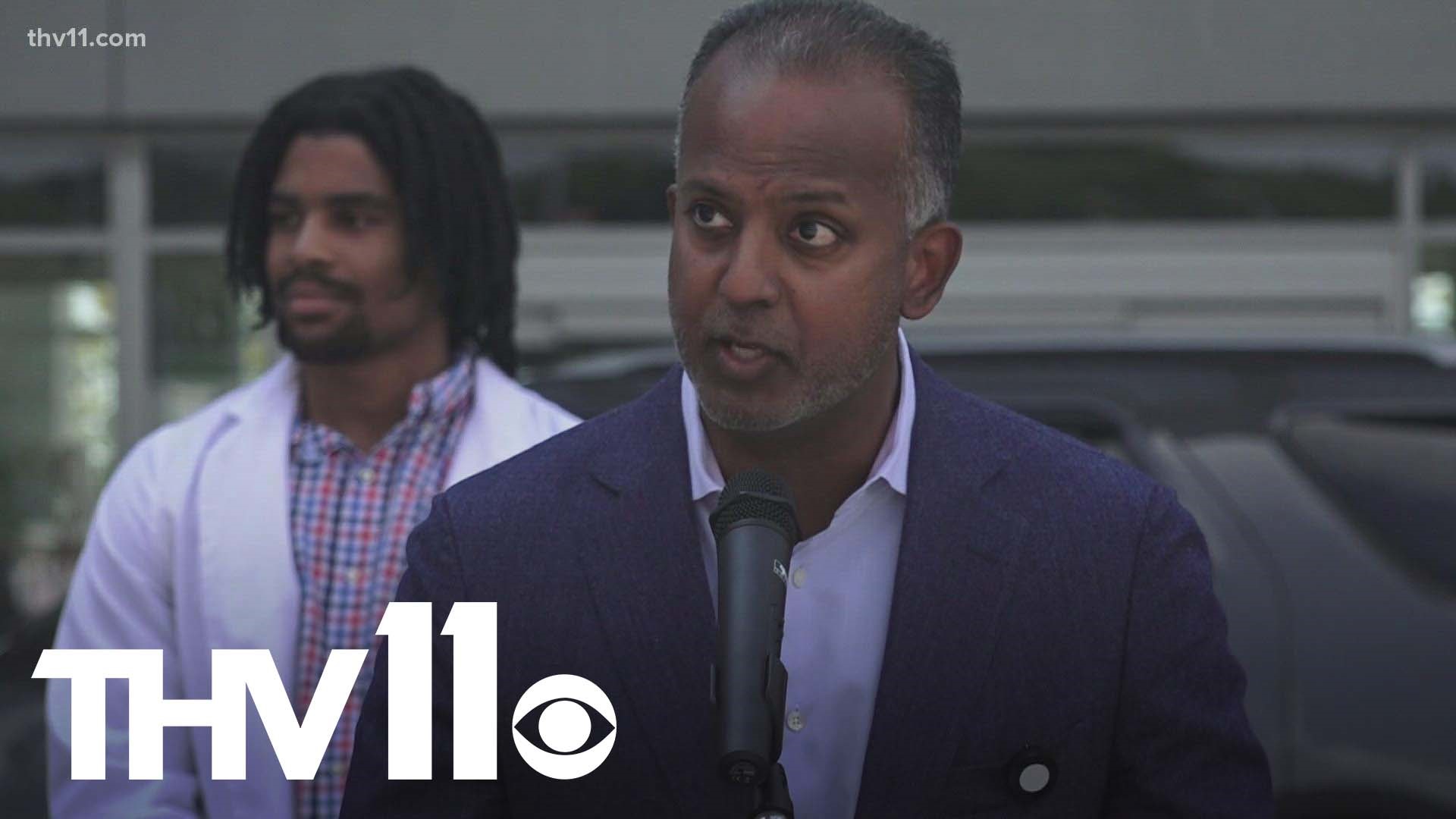LITTLE ROCK, Ark. — Local healthcare workers came together at the University of Arkansas for Medical Sciences in hopes of addressing the disparities in medical care within the Black community.
Several leaders at UAMS, plus Mayor Frank Scott Jr. united on Friday afternoon to continue the conversation.
They said that diversity is at the forefront of what they do— and they want to keep moving forward to acknowledge and speak out against racism.
"Health inequity is the single most urgent long-term issue we face in our state of Arkansas," Dr. Tony Seupaul said.
Dr. Seupaul said that over the past few years, UAMS has made progress toward equality, but there's still more work to be done.
"Ramping up diversity and inclusivity efforts is a top priority for us in the College of Medicine," Dr. Seupaul said.
That's why they will be looking to fill a new leadership position at the college.
"This new associate dean will lead our efforts to improve health outcomes for underserved Arkansans," he explained.
Dr. Brian Gittens said that he has also seen these healthcare issues firsthand.
"I've had loved ones and family members and things like that, that I've seen suffer from healthcare disparities," Dr. Gittens said.
Dr. Gittens said that their solution will be to have more employee diversity and expand healthcare to rural areas with mobile health units.
"Ensuring they have access to both primary care as well as diseases that plague African Americans more acutely than other populations, such as diabetes, stroke, hypertension," Dr. Gittens said.
Dr. Michelle Krause added that they're also determined to reduce maternal and infant mortality.
"Although black women comprise about 20% of births, they are nearly twice as likely to die during childbirth or in the year after," Dr. Krause said.
UAMS will expand its Centering Pregnancy Program to northwest Arkansas and start a new mobile unit.
The program will be designed to provide prenatal care in a group setting.
"We are the ones that are going to help bridge these gaps. And so I look forward in the next few years to provide more information on how we're doing across the state," Dr. Krause said.
At the end of the event, people signed their names on a board to show their commitment to health equity.
There was also a moment of silence to remember the lives of those lost to healthcare disparities.

